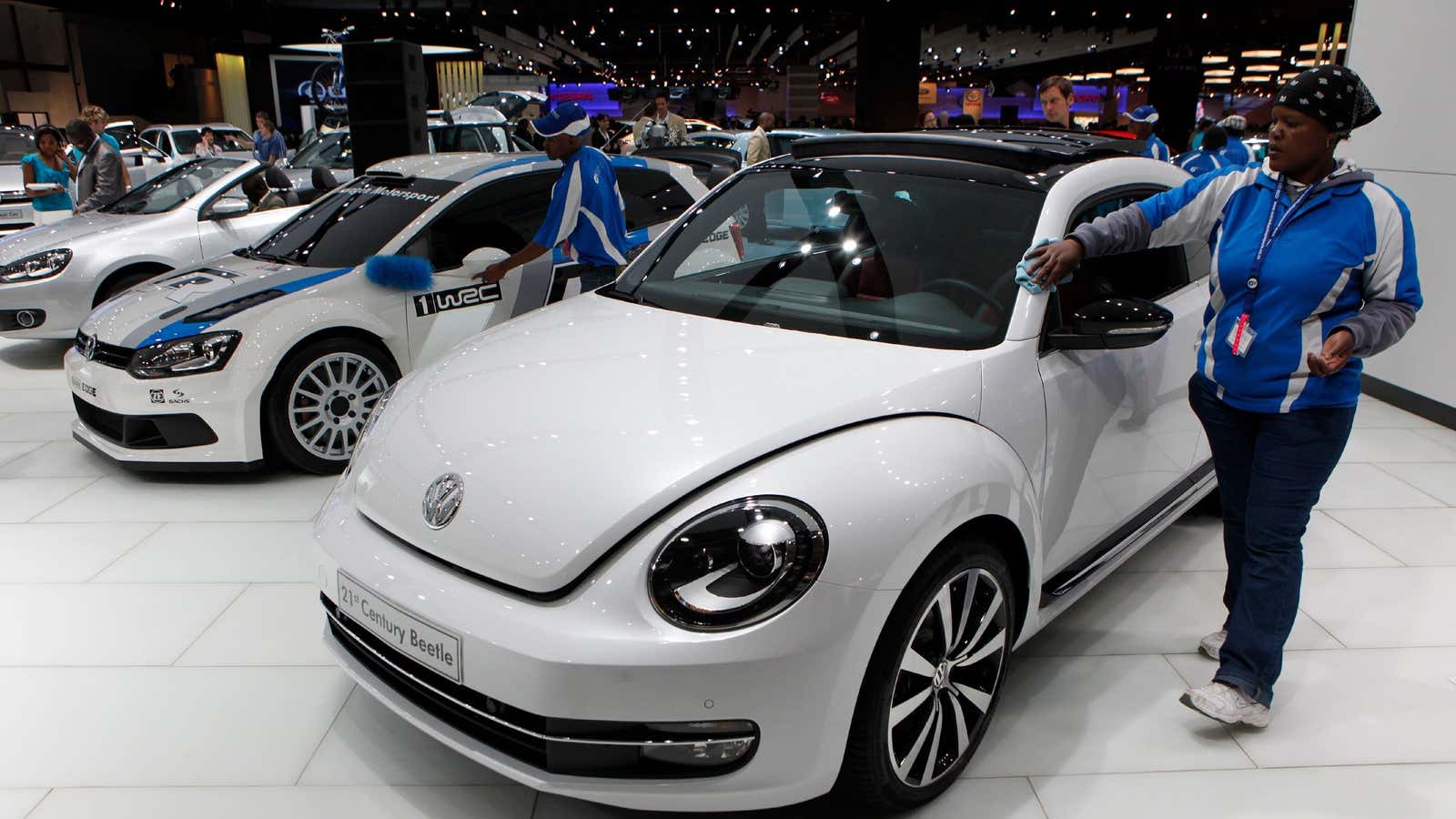Volkswagen has tapped a scientist to lead its Rwanda operations as the automaker seeks to expand its market in sub-Saharan Africa and wean drivers off second-hand imported cars.
The German carmaker appointed Michaella Rugwizangoga on Monday (Mar. 26) to manage Volkswagen Mobility Solutions Rwanda, a $20 million operation that includes an assembly plant, car sharing, and ride-hailing systems. Rugwizangoga, who was previously an advisor with the Rwanda Development Board, now runs an innovation accelerator with Imbuto Foundation, the charitable institution run by the first lady of Rwanda.
The designation comes just months before the company begins assembling 1,000 cars at its new in-country plant, including the Polo, the Passat, and the Teramont sports utility models. VW’s foray into a small, poor country like Rwanda is a departure from its investments in large regional economies like Kenya and South Africa, or populous nations like Nigeria.
VW is the first international automobile company to invest in Rwanda, one of several global companies to pitch operations in emerging markets, allowing them to save on labor costs, avoid import levies, benefit from tax breaks, increase margins, and get closer to the end consumer.
VW credited Rwanda for its economic growth and its betting on technology and smart cities, and said there’s a need for more modern mobility solutions. “There is almost no corruption, and the population is very young, eager to be educated, and internet-savvy,” Thomas Schäfer, who oversees VW’s Africa operations, said.
In the first phase of its plan, the automaker aims to create 500 to 1,000 jobs in Rwanda. These will include the drivers who will operate 300 vehicles for the public sharing and ride-hailing services. The programs will enter a market where many cannot afford their own cars and where global ride-sharing companies such as Uber have yet to launch. The Rwandan social innovation Awesomity Lab has been selected to develop the software app through which all the bookings and payments will be made.
In Africa, a continent of one billion people, the car market is still relatively small, with just over 42.5 million registered vehicles in use as of 2014. But that is already changing, given the increasing domestic demand for new vehicles, stemming from rising incomes and a boom in infrastructure development. Since 2003, vehicle imports rapidly grew, coinciding with high commodity prices and a growing middle class, according to an analysis by the professional services firm Deloitte.
Across the continent, Volkswagen is expanding its activities—along with its competitors Toyota, Nissan, and Peugeot, who are also promising to ramp up operations. In 2015, VW began operating in Nigeria after it left the country a quarter of a century earlier, due to weak demands and quality woes. And in 2016, the company returned to Kenya, more than four decades after ceasing production there.
In Rwanda, where just over 183,000 registered cars serve a population of 12 million, VW looks set to become a leading producer of brand-new vehicles on the continent.
